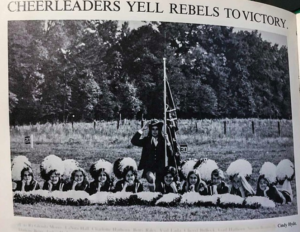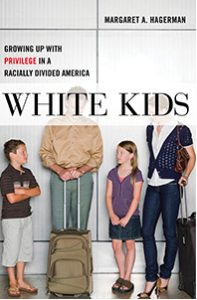
It did not please many white Mississippians when Ashton Pittman, my state reporter at the Jackson Free Press, wrote an in-depth news feature exposing U.S. Sen. Cindy Hyde-Smith’s long-time connections to “segregation academies” in Mississippi, which she was pointedly leaving out of her bio (just as Gov. Phil Bryant avoids talking about his racist Citizens Council high school). As Ashton reveals, Hyde-Smith’s family’s devotion to such schooling dated back to the very year many of them opened—in 1970 just as the U.S. Supreme Court ordered Mississippi and other resistant states to fully integrate public schools nearly 20 years after the Brown v. Board decision. And, yes, they received public money then—as many still do now—despite the fact that very few children of color attend them today.
But many white Mississippians want to send their children to schools with this legacy, but not have anyone ever talk about the potential effects of it. This was part of an angry Facebook message a man I barely know sent to me after the story published and went viral:
Now that you have gotten your fifteen minutes from the national media on your pitiful hit piece on Cindy Hyde-Smith’s educational pedigree (keep in mind that I think CHS is a moron, I won’t be voting for her, and I think the 2nd Amendment should be repealed), I want to pass along my feelings it was unwarranted. She was sent to a school by her parents (not her fault) and then sent her children to a school that (like the VAST majority of private schools) is superior to the local public school.
Dude misses factually on several points here. First, most of the national media appearances that Ashton and I did were before that story published. Due to Ashton’s wonderful coverage of the Mississippi Senate race (best in state), national media were asking us to comment on the race. (I think each of us did just one interview after the seg-academy story broke: his with Al Sharpton on MSNBC, mine on Rev. Jesse Jackson’s radio show with his daughter Santita Jackson.)
Second, Ashton’s story wasn’t a “hit piece” or “unwarranted.” Obviously, Hyde-Smith’s parents sent her to a brand-new segregation academy that openly lusted over the Confederacy many years after the South lost its war to maintain and extend slavery to new states. Those schools taught overt racism then, down to teaching white kids that they were biologically superior to black kids; the racist teachings are documented fact. It’s important to know that an elected public servant from the state with the highest proportion of African Americans was socialized in that way—and how she fights against it now, or if she does.

If Hyde-Smith had realized the error of that education, she would be willing to talk about how it shaped her to reject those ideas, just as many white Mississippians have long done, and continue to do. I’ve had white kids from seg academies come to intern for my newspaper practically crying due to schooling choices their parents made; they are seeking more integrated and open-minded experiences. Many white people who attended racist schools are great human beings, in no small part because they learned how not to think from those experiences, which is true for my history with racism growing up. I had to work to overcome it. But Hyde-Smith refuses to address race or racism in Mississippi in any kind of meaningful way, if at all, including her own shocking remark about being “on the front row at a public hanging”—which in this state means a lynching.
Not to mention, Hyde-Smith had turned around and sent her daughter to a white—with an exception or two—segregation academy that opened the same year as the one she attended. That’s called a pattern.
As for “superior” education in schools that opened as seg academies? Sorry, I haven’t seen it, and I’ve worked with teenagers and young adults from about every private school in or near Jackson. Smaller class sizes and higher-quality teachers (in some classes anyway) cannot make up for the bigotry, Civil War/slavery revisionism, homophobia and even anti-science and civics ideas that many Mississippi kids learn in private schools. Such rigidity, often based on falsehoods that downplay or deny our brutal history of white supremacy, inhibits critical thinking if they don’t actively work to overcome it (which many thankfully do, and they never seem to mind talking about it). I’ve had black kids in the Youth Media Project I started who got very upset about the way white students were treating them at some of the best-quality private schools in the area because they try to talk about race (and I’ve worked with other conservative white students who embraced the chance to fill in holes in their own education about racism). The difference is the willingness to confront difficult truth.
Are all the state’s seg academies teaching the differences between interpersonal, structural and institutional racism? Are they honest about the causes of secession and the Civil War, or even that the KKK started as a terrorist organization? Are they looking at societal and generational causes of poverty and crime, or just blaming those other people who are supposedly more flawed than they are? Are they leading serious race dialogues for educators and students alike?
Seriously, I want to know if they are. I’ll write about it.
The bigger issue here is that many white Mississippians have grown up in generational shame and denial (usually a combination) dating all the way back to slavery and the Civil War. It takes a lot of effort to justify and try to cover up what so many of our own families did in a state where 49 percent of white families owned slaves at the start of the Civil War. Or the black codes and Jim Crow laws and lynching and KKK and white-militia terrorism that followed for decades. Or the resistance to school and other public integration. Or the white flight out of public schools and cities, which sociologist Maggie Hagerman addresses well in her book, “White Kids: Growing Up with Privilege in a Racially Divided America” (NYU Press, 2018)

In an interview for The Guardian, Hagerman told me the following about white kids she studied:
Some of the children really believed in meritocracy. Their understandings of inequality were that people who were successful and rich worked hard; those who where unsuccessful and poor were lazy. Without understanding the history of racism in America, that explanation that the kids are offering would make sense for them. They haven’t learned about the history of redlining, the history of slavery, the genocide of Native Americans, the relationship between the United States and Mexico. If they’re not learning this multicultural history, when they look out at the world and see that people who look like them are successful, it must be because they’re better, they work harder, and their parents care about them more. That has dangerous consequences.
Since we launched the Jackson Free Press 16 years ago, we’ve talked openly about issues, including race, homophobia and beyond, that many Mississippians would rather be left untouched in our state. But this is our history, and it’s what shapes the state that is perennially on the bottom of most indicators since we lost our vast slavery-generated wealth after the Civil War. It is very hard to argue that anyone who does not understand our state’s full history, including the role of seg academies in sustaining white supremacy, has a “superior education”—or is fit to lead our state. They are the ones keeping us no the bottom, whether they understand that or not.
These uncomfortable conversations will continue in my own work and in what appears in my newspaper. We do not solve this state’s, or nation’s, problems by a continued conspiracy of silence, and allowing white fragility to stop vital conversations, which Ashton’s story created nationally. If that makes people uncomfortable, so be it. Too much is at stake to allow denial and shame to keep vital truth hidden from so many of our citizens, creating harmful miseducation that bolsters white privilege and supremacy. I’m done with it. Mississippi can, and must, do better.
Girl, we are beginning a lovely internet friendship. I love the way you think. If I were a journalist I’d want to work with you. Thank you explaining how bad council schools are to this person. In my experience they are so lacking academically it’s ridiculous and sad. I know that some schools have teachers that don’t even have a degree in education or their subject matter. Some aren’t licensed to teach. I’ve known valedictorians from council schools that would be an average student at a public school. They just don’t know any better. Our education system is so broken and it won’t/can’t be fixed until council schools are gone. If these parents were forced to send their kids to public schools more money and attention would be focused on fixing the situation.
Okay I’m off my soapbox.
Personally, I’d like to see a survey of how many graduates of traditional seg academies (and all Mississippi private schools for that matter) know THE cause that Mississippi’s secession and entry into Confederacy was “thoroughly identified with.” (Slavery, as the Mississippi Declaration of Secession explained in no uncertain terms.)